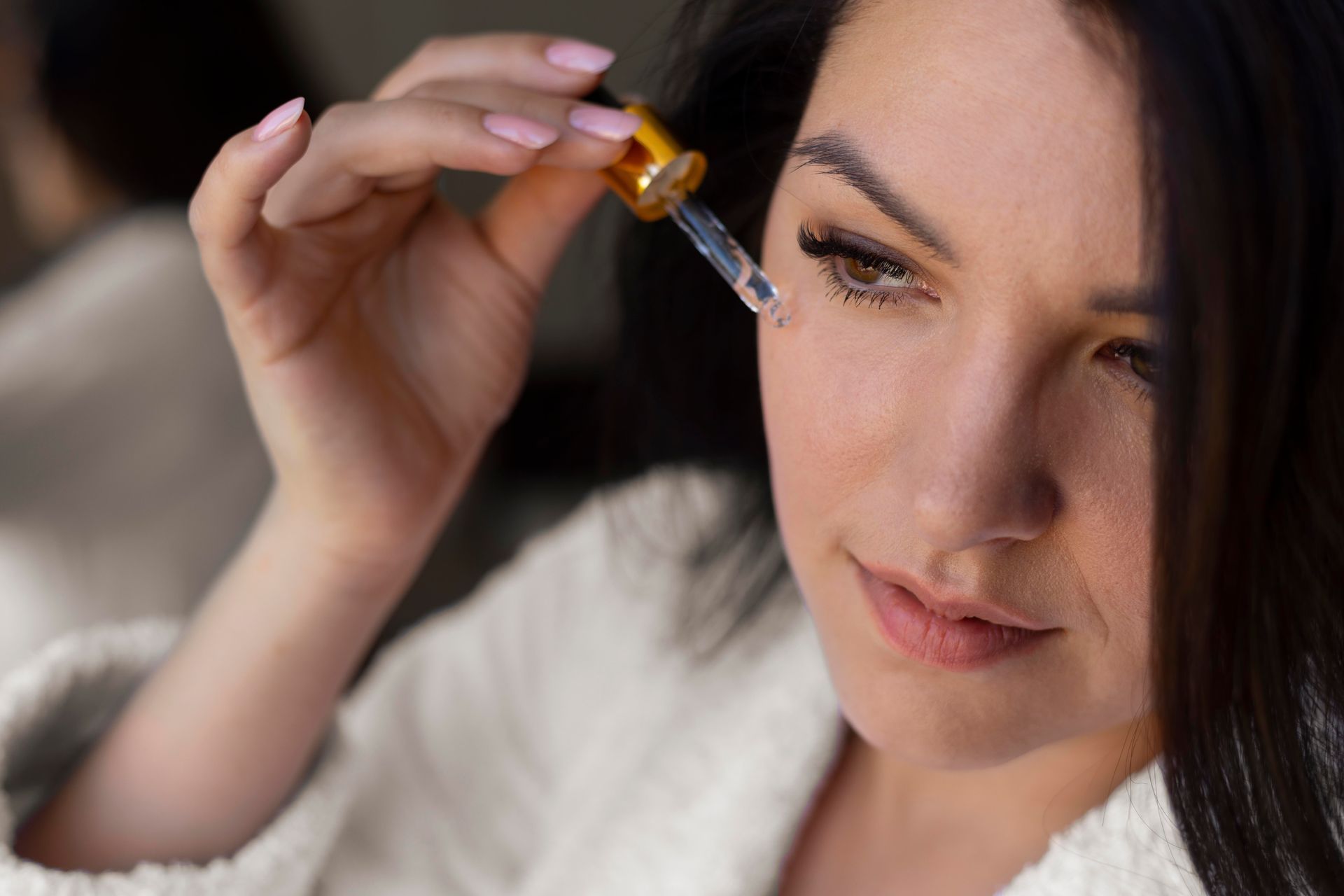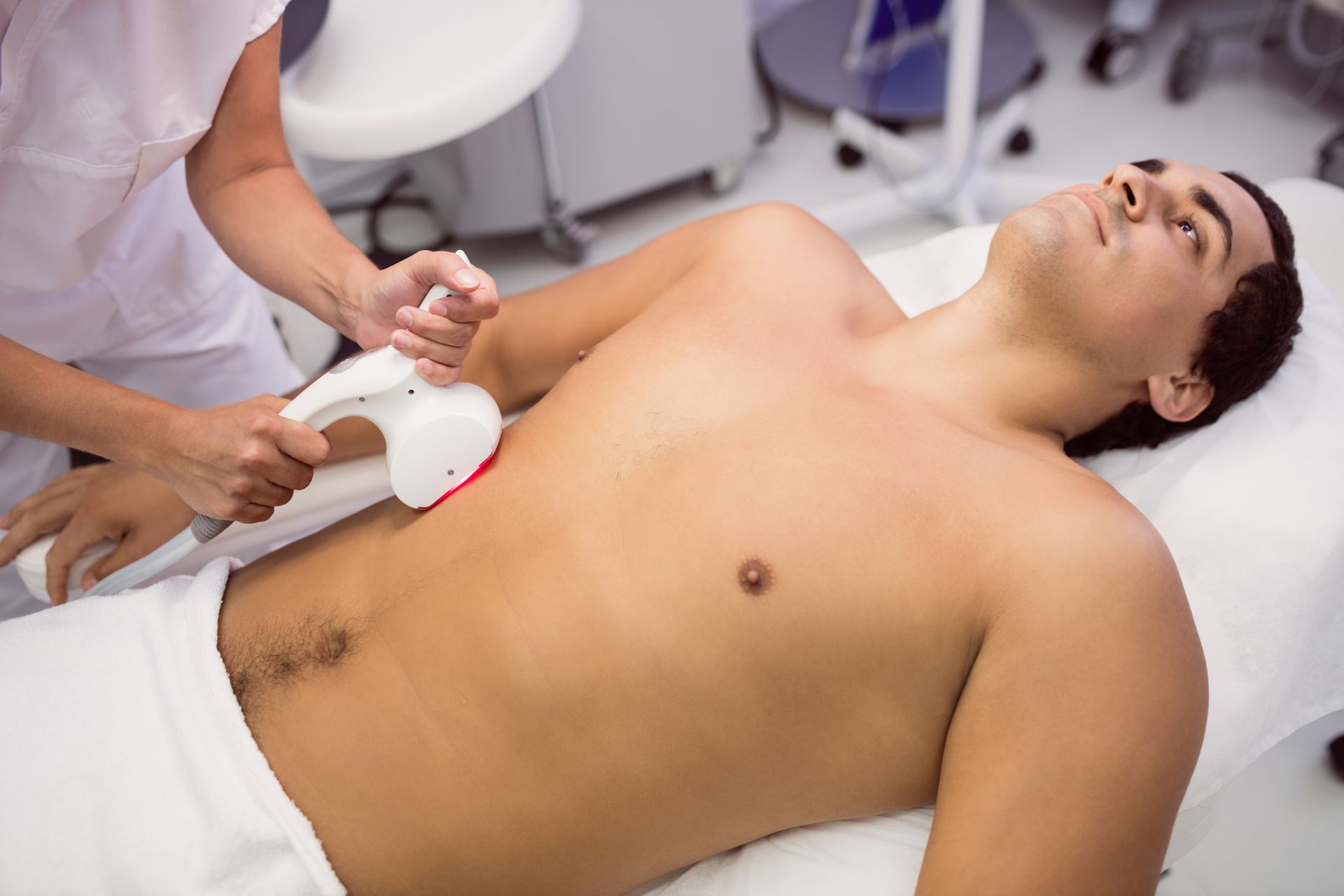Can You Do Laser Hair Removal if You Have Tattoos?
Laser hair removal is one of the most effective ways to permanently reduce unwanted hair. Tattoos, on the other hand, are permanent works of art on your skin. But what happens when the two overlap? Can you safely do laser hair removal if you already have tattoos?
The short answer: you can still get laser hair removal if you have tattoos—but not directly on tattooed skin. The process requires careful adjustments, protection, and sometimes alternative methods to ensure your tattoo remains intact and your skin stays safe.
Let’s break this down in detail, including how to protect tattoos, what to expect during sessions, and alternative solutions if you’re covered in ink.
What Happens if You Do Laser Hair Removal Over a Tattoo?
This is one of the biggest concerns clients have—and it’s a valid one.
When a laser is used for hair removal, it’s designed to target pigment in the hair follicle. But tattoos also contain pigment (ink). If a laser hits that ink, several things can happen:
- The tattoo pigment absorbs the laser energy. This can cause burns, blistering, or scarring.
- Tattoo fading or distortion. Even if the skin doesn’t burn, the ink can break down, leaving your tattoo looking patchy or faded.
- Increased pain. Laser hair removal is already a bit uncomfortable; on tattooed skin, it can feel much more intense.
This is why professional clinics will never run a hair removal laser directly over your tattoo. Instead, they’ll work around it or recommend other safe options.
How to Get Laser Hair Removal if You Have Tattoos
So, does having tattoos mean you can’t benefit from laser hair removal at all? Not at all. It simply means your sessions will need a more tailored approach. Professionals usually work around tattoos rather than over them—so if you’ve got ink on your arm but want to target underarm hair, that’s absolutely fine. During treatment, clinics also protect tattoos with special coverings, like white medical patches, to prevent the laser from accidentally interacting with the ink. And for areas directly covered by tattoos, other options like shaving, waxing, or even electrolysis may be recommended depending on your skin and hair type. This way, you still get the smooth, long-term results of laser for most of your body, while keeping your artwork safe and intact.
How Do I Protect My Tattoo During Laser Hair Removal?
Protecting your tattoo during laser treatments is essential, and most of the responsibility falls on the technician. That said, here’s what you should expect:
- Covering the tattoo. A thick, opaque covering will be applied before the laser session begins. This ensures no accidental contact.
- Clear communication. Always show your technician where your tattoos are and mention if you have any small or faint ones that might be overlooked.
- Aftercare. If the skin near your tattoo feels sensitive after treatment, follow aftercare instructions—moisturize, avoid sun exposure, and don’t scratch or irritate the area.
It’s always better to be extra cautious. A skilled professional will take time to map out your tattoos before starting the laser.
Why Winter Is the Best Time to Start Laser Hair Removal
What Is the Best Hair Removal for Tattoos?
Since laser isn’t safe directly on tattoos, what’s the next best option?
- Shaving: The simplest and safest method, though it requires frequent upkeep.
- Waxing: Works well for smoother results but can sometimes irritate tattooed skin if it’s still healing or sensitive.
- Electrolysis: This is the only FDA-approved permanent hair removal option that can safely treat tattooed areas, since it targets each follicle individually with a fine needle and doesn’t interact with ink.
- Depilatory creams: Can be an option for some, though many people with tattoos avoid them due to potential irritation.
Each method has pros and cons, but electrolysis tends to be the most reliable permanent choice if you want to remove hair growing directly over tattoos.
Can I Get Laser Hair Removal If My Whole Arm or Leg Is Tattooed?
This is a common situation for people with sleeves or large tattoos. Unfortunately, if your entire arm or leg is fully covered in ink, laser hair removal won’t be an option for that area.
Instead, you may need to consider:
- Electrolysis for permanent results, though it’s more time-consuming.
- Regular waxing or shaving to maintain smoothness.
For other parts of your body without tattoos, laser is still an excellent choice.
Does Laser Hair Removal Affect Tattoo Ink Colors Differently?
Yes. Some ink colors—especially dark ones like black or navy—are more likely to absorb laser energy. This means they’re more prone to damage during hair removal treatments.
Lighter inks, like yellow or white, might not react as much, but they still pose a risk. Because tattoos often contain multiple shades, most professionals will avoid lasering over them entirely, regardless of the color.
Does Laser Hair Removal Work Better on Thick or Thin Hair?
Tattoo Aftercare and Laser Hair Removal: What You Need to Know
If you’ve recently gotten a tattoo, you’ll need to wait before doing laser anywhere near it. Fresh tattoos are extra sensitive and need time to heal—typically at least 8 to 12 weeks.
Trying to do laser too soon can:
- Delay tattoo healing.
- Cause unnecessary irritation.
- Increase your risk of infection.
If you’re planning both laser hair removal and tattoos, the best strategy is to complete laser first, then get your ink afterward. That way, you won’t have to worry about treating over tattooed skin.
Can Laser Hair Removal Be Used to Remove a Tattoo?
Here’s where things often get confused: laser tattoo removal and laser hair removal are two different procedures.
- Tattoo removal lasers are designed to break down ink particles.
- Hair removal lasers are designed to target hair follicles.
While they use similar technology, they are not interchangeable. Attempting to use a hair removal laser to fade a tattoo will not work—and could cause burns or scarring.
If your goal is to remove a tattoo, you’ll need to consult with a specialist who uses the correct tattoo-removal equipment.
Alternatives: Combining Hair Removal and Tattoo Planning
If you’re considering getting a new tattoo but also want laser hair removal, timing matters. A smart strategy is to:
- Do laser hair removal first in the area where you plan to get inked. This ensures the area is smooth and you won’t need to worry about hair interfering with the tattoo.
- Wait until treatment is complete (usually several months).
- Then get your tattoo.
This sequence saves you the hassle of trying to manage hair removal over a tattoo later.
Why Professional Guidance Matters
The internet is full of DIY tips and misleading advice about mixing tattoos and laser hair removal. Some even suggest that it’s okay to “test” the laser on small sections of ink. This is risky.
At a professional clinic, technicians:
- Know how to adjust laser settings for different skin tones.
- Understand how tattoos respond to light-based treatments.
- Will refuse to treat areas where safety can’t be guaranteed.
Choosing an experienced spa like Huggie Beauty Hollywood ensures you get the safest, most effective results without putting your tattoos—or your skin—at risk.
Conclusion:
So, can you do laser hair removal if you have tattoos? Absolutely—but with conditions. You cannot treat directly over tattooed skin, but you can safely treat the areas around it. With proper protection, planning, and professional guidance, you can enjoy the benefits of smooth, hair-free skin without compromising your ink.
If you’re tattooed and curious about laser hair removal, the best step is to book a consultation. At Huggie Beauty Hollywood, we’ll evaluate your tattoos, your skin, and your hair type, then design a plan that works for you.










